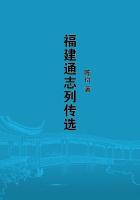III. Privation.
First and general cause of privations. - The socialist principle of the Revolutionary government. - Measures against large as well as small properties. - Expropriation of all remaining corporations, enormous issues of paper-money. forced rates of its circulation, forced loans, requisitions of coin and plate, revolutionary taxes, suppression of special organs of labor on a large scale. - New measures against small proprietorship. - The Maximum, requisitions for food and labor. - Situation of the shop-keeper, cultivator and laborer. - Effect of the measures on labor on a small scale.
Stoppage of sales.
Obviously, if the people is not being fed properly and in places not at all, it is because one of the central and most important fibers of the economical machine has been incapacitated. It is evident that this fiber controls the sentiment by which man holds on to his property, fears to risk it, refuses to depreciate it, and tries to increase it.[28] Obviously in the real human being, such as he actually is made up, this intense sentiment, tenacious, always stirring and active, is the magazine of inward energy which provides for three-fourths, almost the whole, of that unremitting effort, that calculating attention, that determined perseverance which leads the individual to undergo privation, to contrive and to exert himself, to turn to profitable account the labor of his hands, brain and capital, and to produce, save and create for himself and for others various resources and comforts.
(It is probable that disinterested motives, pure love for one's neighbor, for humanity, for country, do not form a hundredth part of the total energy that produces human activity. It must not be forgotten that the actions of men are alloyed with motives of a lower order, such as love of fame, the desire of self-admiration and of self-approval, fear of punishment and hope of reward beyond the grave, all of these being interested motives, and without which disinterested motives would be inoperative excepting in two or three souls among ten thousand.[29])Thus far, in society as a whole, this sentiment has been only partially touched, and the injury has mainly been to the well-to-do or rich classes. At first only one-half of its useful energy has been destroyed since only those services rendered by the rich and wealthy classes have been dispensed with. Little else than the labor of the capitalist, proprietor or contractor has been suppressed, whose far-reaching, combined, comprehensive labor, the rewards of which consist of objects of luxury and convenience, ensure for society that abundant supplies are always on hand, through ready and spontaneous distribution of indispensable commodities. There remains (for the Jacobins) to crush out what is left of this laborious and nutritive fiber; the remnant of useful energy has to be destroyed down to its extirpation among the people. Here there must be a suppression, as far as possible, of all manual, rude labor even on a small scale, and of its rudimentary fruits; the discouragement of the insignificant shopkeeper, mechanic and ploughman must be effected; the corner-grocer must be prevented from selling his sugar and candles, and the cobbler from mending shoes: the miller must think of giving up his mill and the wagoner of abandoning his cart; the farmer must be convinced that the best thing he can do is to get rid of his horses, eat his pork himself,[30] let his oxen famish and leave his crops to rot on the ground. - The Jacobins are to do all this, for it is the inevitable result of the theory that they have proclaimed and which they apply.
According to this theory the stern, strong, deep-seated instinct through which the individual stubbornly holds on to what he has, to what he makes for himself and for those that belong to him, is just the unwholesome fiber that must be rooted out or paralyzed at any cost; its true name is "egoism, incivism," and its operations consist of outrages on the community, which is the sole legitimate proprietor of property and products, and, yet more, of all persons and services.
Body and soul, all belongs to the State, nothing to individuals, and, if need be, the State has the right to take not only lands and capital, but, again, to claim and tax at whatever rate it pleases all corn and cattle, all vehicles and the animals that draw them, all candles and sugar; it has the right to appropriate to itself and tax at whatever rate it pleases, the labor of shoemaker, tailor, miller, wagoner, ploughman, reaper and thrasher. The seizure of men and things is universal, and the new sovereigns do their best at it; for, in practice, necessity urges them on; insurrection thunders at their door; their supporters, all crackbrains with empty stomachs, the poor and the idle, and the Parisian populace, listen to no reason and blindly insist on things haphazard; they are bound to satisfy their patrons at once, to issue one on top of the other all the decrees they call for, even when impracticable and mischievous to starve the provinces so as to feed the city, to starve the former to-morrow so as to feed the latter to-day. - Subject to the clamors and menaces of the street they dispatch things rapidly; they cease to care for the future, the present being all that concerns them; they take and take forcibly; they uphold violence by brutality, they support robbery with murder; they expropriate persons by categories and appropriate objects by categories, and after the rich they despoil the poor. - During fourteen months the revolutionary government thus keeps both hands at work, one hand completing the confiscation of property, large and medium, and the other proceeding to the entire abolition of property even on a small scale.















